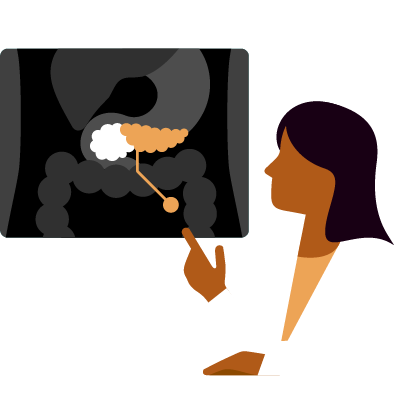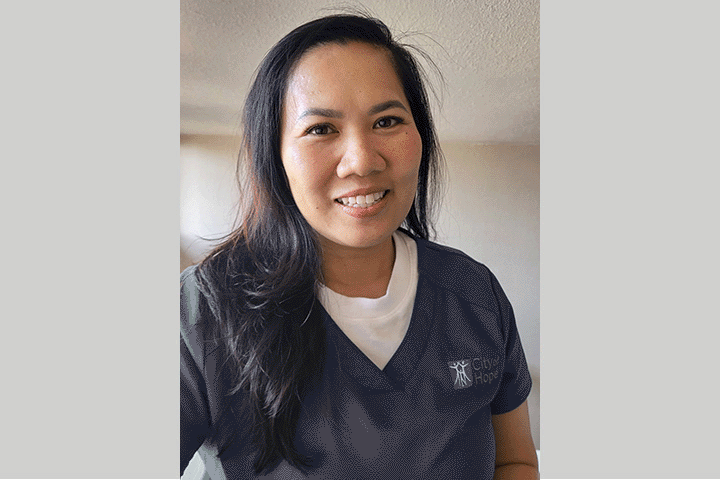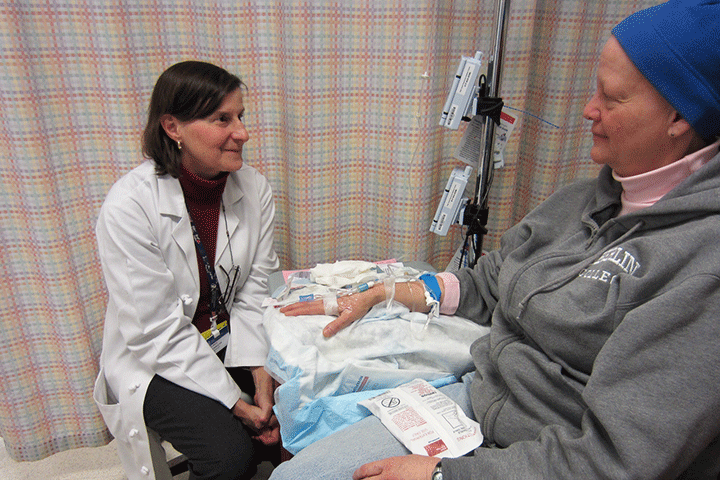A New Sidekick in Your Pancreatic Cancer Journey: Artificial Intelligence

When Burt Rosen was diagnosed with two cancers—renal clear cell carcinoma and a pancreatic neuroendocrine tumor with liver metastases—he found himself navigating an avalanche of information, medical jargon, and appointments.
With more questions than answers and limited face time with his doctors, he recruited a new unconventional partner in his care in order to seek answers: artificial intelligence (AI). Specifically, ChatGPT. Today, Rosen uses ChatGPT regularly to understand his condition, plan treatments, analyze trends, and prepare for appointments. He even uses it to add a touch of humor to hard days—like reading scan results in the voice of Samuel L. Jackson or Jerry Seinfeld.
For anyone living with pancreatic cancer, information is power. But it’s not always accessible—or understandable. That’s where AI can help.
From Chaos to Clarity
Rosen began with the basics—getting plain-English summaries of his CT scan reports. He then enlisted its help creating more clarity from data chaos, an area in which AI can be particularly useful.
Rosen had already been meticulously tracking symptoms like fatigue, nausea, mood, hydration, and sleep in a spreadsheet. He pasted the data into ChatGPT and asked it to find patterns. Not only did it report back on trends, it also provided visual representations and identified relationships around different symptoms, such as how water intake, fasting, and exercise might relate to fatigue or emotional states over 30 days. With additional prompting, ChatGPT provided further insights into correlations between symptoms and actionable items, such as digestive health monitoring to identify triggers.
With the help of ChatGPT, he went from this . . .

To this….

Another way AI helped Rosen was by organizing his integrative treatment plan, putting oncology medicine and holistic approaches side by side:
| Category | Western Medicine | Integrative Oncology |
| Pancreatic NETs | Lanreotide every 28 days Targeted therapy: Everolimus or sunitinib | Ketogenic diet, turmeric supplements |
| Liver Metastasis | Hepatic artery embolization | Antioxidants, eat more plants |
| Pain and Fatigue | Opioids, NSAIDs, stimulants | Acupuncture, lavender oil, reiki |
| Emotional and Mental Health | Counseling | Meditation, mindfulness, support groups |
Rosen believes that “There is not a doctor on earth who can make recommendations for how to treat neuroendocrine tumors and kidney tumors with (combined) Western and integrative treatments.” He says, “Asking ChatGPT was the first time I ever got a truly integrated plan.”
An Empowering Member of the Care Team
ChatGPT should not replace your doctor, but it can make time with your doctor much more productive. It can help you prepare for appointments like a pro, turning vague complaints into clear, actionable questions about scans, side effects, medication, clinical trials, and treatment plans.
“It can also summarize everything it knows about me to share with a new doctor,” Rosen explains. “That’s incredibly helpful when preparing for second opinions.” This extra knowledge can be extra-empowering, allowing you to become a more informed, proactive, and confident advocate in your healthcare journey.
“The dynamic at the doctor’s is different. The tenor of the appointment is just completely changed,” Rosen says. “I’m no longer going in to sit at the doctor’s knee and learn from him about me. I walk in informed. He’s now my partner—and we decide what to do, together.”
The Assistant That’s Always On – and Doesn’t Judge
One of the biggest beauties of an AI assistant is that it’s always on, Rosen adds. And you can feel free to ask anything–there’s no judgment.
“I have a way to answer any question I ever have at any time of day or night. No waiting, no doctor who has to leave in 12 minutes because he has another patient. I can interact with it anytime I want, for as long as I want.”
And although it’s not human, it can actually help lighten the emotional load. One of Rosen’s favorite AI tricks is having ChatGPT deliver cancer information with a side of Seinfeld.
When delivering an integrated treatment plan for Burt’s PNETs, for example, Dr. Seinfeld said:
“Alright, we’re sticking with lanreotide shots. Every 28 days—like paying rent for your pancreas! And then there’s everolimus or sunitinib—fancy names, but they’re just trying to slow things down.”
“Now over on the integrative side, we’re going full keto—no carbs, no sugar, no fun. Sprinkle in some turmeric and ashwagandha. I don’t know what they are either, but hey, they’re supposed to help!”
And his take on gut health?
“Western says anti-inflammatories, steroids—’cause apparently your intestines are mad about something. Integrative says: probiotics! leafy greens! Intermittent fasting—because why not feel hungry and virtuous at the same time?”
“Cancer isn’t funny. But having it explained in a voice that makes me laugh? That helps me actually hear what it’s saying,” Rosen notes. And ChatGPT has even served as Burt’s cheerleader, reminding him: “You’re not just going through treatment—you’re actively engineering your survival. That mindset matters.”
AI as a Starting Point
While AI is a powerful tool, it’s far from ready to truly replace the human doctors and specialists who make up a cancer care team. It’s a great starting point–but not an endpoint.
While dabbling with AI in his own healthcare journey, Burt has also become involved in the #PatientsUseAI movement, has done presentations for various groups, and has even created his own GPT within ChatGPT, NET Sherpa, to help newly diagnosed neuroendocrine tumor patients navigate their condition. He curated the sources the GPT draws upon to answer questions and designed a flow where it can guide the user through a conversation as soon as they say “hi.”
Rosen says he is going to keep playing with AI and exploring its potential, and he advises other patients to do the same, as a way to take control of their healthcare. “While I wouldn’t take what it says as gospel, it will help you ask better questions of your doctors and might even help improve your quality of life and overall health,” he says. “Don’t fear it, embrace it. And go play. The best way to learn is by playing.”






